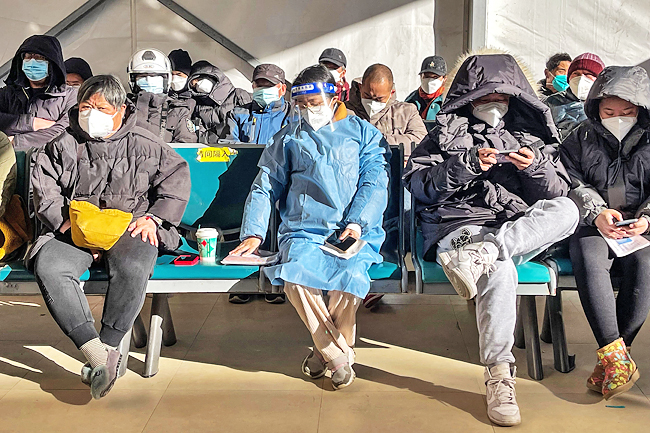Bo Zhiyue
CNA – Instead of the “common prosperity” advocated by President Xi Jinping since 2021, China’s annual Central Economic Work Conference from December 15 to 16 was devoted to reform and opening.
Policymakers pledged to encourage the development of the private sector in parallel to the state-owned sector, support the expansion of housing sector, continue the export-oriented strategy and promote China’s economic integration with the rest of the world.
But with China still undergoing political transition, it is uncertain whether these measures will come into fruition.
China’s political transition usually takes two major steps every five years. After the 20th National Party Congress elected new party leaders in October, a new State Council will be formed at the 14th National People’s Congress in March 2023.
The State Council – the executive branch of China’s political system – will helm the formulating of specific economic policies and implement them with the approval of the Chinese Communist Party (CCP) leadership.
Li Qiang, the former party secretary of Shanghai who oversaw its two-month lockdown in early 2022, is poised to lead the State Council as China’s next premier.

THE NEW FACE OF THE STATE COUNCIL
In addition to Li Qiang, two other members of the 20th Politburo are likely to enter the new State Council.
Ding Xuexiang, number six ranking member of the 20th Politburo Standing Committee and director of the General Office of the CCP Central Committee, is likely to replace Vice Premier Han Zheng.
He Lifeng, a new member of the 20th Politburo, vice chairman of the Chinese National People’s Political Consultative Conference, and minister of the National Development and Reform Commission, is also likely to be a vice premier, taking over Vice Premier Liu He’s portfolio of foreign economic relations and finance.
Since all three of them have been President Xi’s confidants, there might be some rivalry among them for his ears and trust.
A U-TURN IN ECONOMIC POLICY
After having practically abandoned Xi’s zero-COVID policy since December 7, the new party leadership has now refocussed on economic issues with outgoing Premier Li Keqiang’s pro-growth policies.
Private entrepreneurs are now encouraged to contribute to China’s economic growth as much as state-owned enterprises; real estate has been reaffirmed as a central role in boosting the economy; and private educational institutions are welcomed as necessary supplements to public educational institutions.
This U-turn in economic policy, very much like the U-turn on pandemic strategy, has come quickly and may be too good to be true.
With Xi Jinping recently declaring that common prosperity will be the key feature of China’s modernisation at the 20th National Party Congress, going back to development as the CCP’s top priority in early December seems mind-boggling.
While real estate, Internet platforms and private enterprises have been targets of state sanctions not long ago, the very same sectors have now become recipients of government support.
Relevant parties have mostly adopted an attitude of wait and see.
Having lived in Tokyo since China clamped down on tech giants, Alibaba founder Jack Ma is unlikely to return to his former role of the executive chairman of the company.
Yu Minhong, founder and CEO of tutoring group New Oriental, would think twice to get back to his business of private education after the sector had been criminalised in some regions in the country.
The immediate problem for China is the tsunami of COVID-19 cases across the country.
No one knows exactly how many people have been infected, while authorities have narrowed criteria for counting fatalities from the virus.
Since very few people are healthy enough to go to work, many businesses are still shut down.
Dr Zhang Wenhong, an infectious-disease specialist and perhaps China’s most trusted voice on COVID-19, predicted it would take three to six months for the worst to be over in Shanghai.
In that regard, China is likely to struggle through a quarter or two in 2023 and is unlikely to see growth rebound so soon.
In the long run, however, if China can navigate protecting public health and avoid reinstating punitive restrictions – while fully committing to market-oriented reforms and opening to the outside world, the economy would very well resume its upward trajectory.






